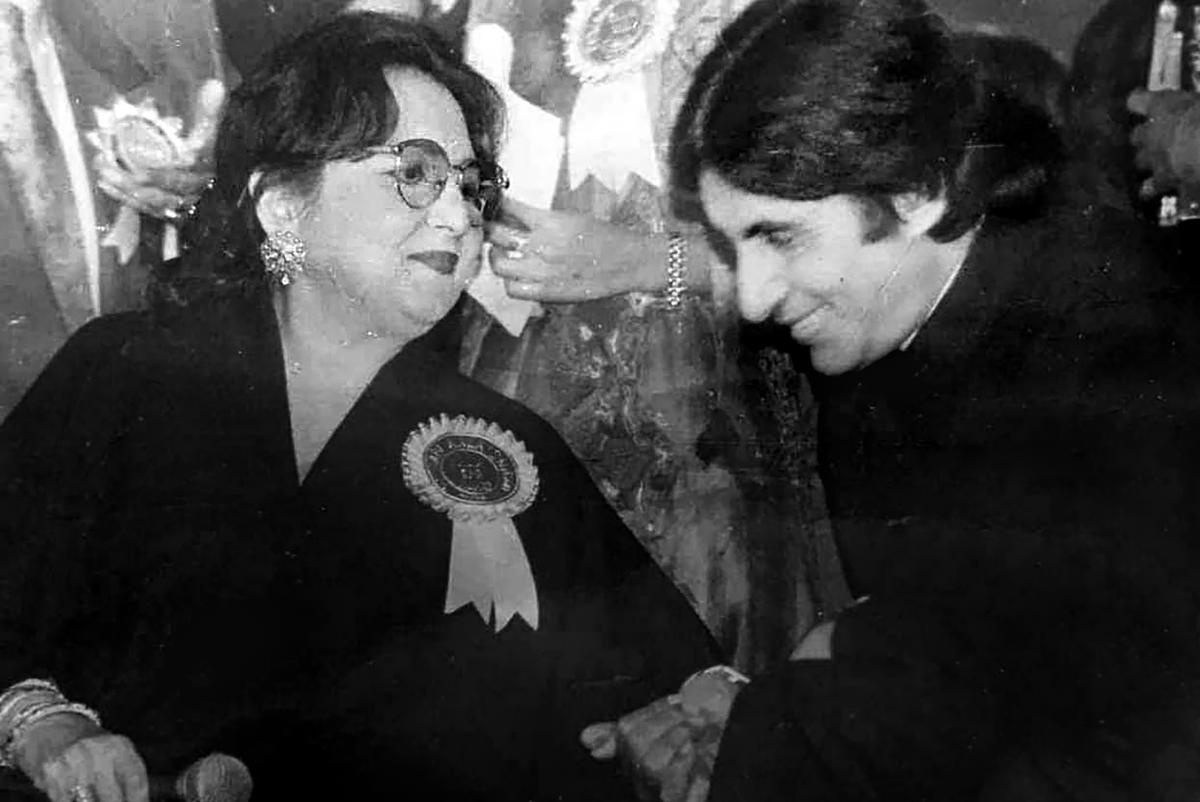[ad_1]
File photo of veteran actor Tabassum, who died on November 19, 2022
| Photo Credit: PTI
Tabassum, who played a big role in documenting the life and times of Hindi film stars when they preferred to safeguard their enigma from the real world, passed away in Mumbai on Friday night after a brief illness. The 78-year-old started her career as a child artiste and went on to host the iconic talk show Phool Khile Hain Gulshan Gulshan on Doordarshan for two decades.
Born to freedom fighters and journalists Ayodhyanath Sachdev and Asgari Begum in 1944, she was named Kiranbala by her mother. Tabassum was her screen name given to her by her father when she started her film career in 1947 with Famous Studios’ Nargis. She lived up to the name and spread smiles and happiness wherever she went. Soon she became the go-to child artiste and was popularly called Baby Nargis and Baby Meena Kumari for playing the childhood roles of the leading actors in popular films such as Deedar and Baiju Bawra. A contemporary of Asha Parekh, the two worked as child artistes in Bimal Roy’s Baap Beti.
One of the highest-paid artistes of the time, Tabassum’s immaculate Urdu diction and her ability to make people smile were noticed from a very young age. The song “Bachpan Ke Din Bhula Na Dena”, picturised on her in Dilip Kumar-Nargis starrer Deedar became a huge hit. She never really let the audience forget the song and retained the childhood effervescence till the very end.
Pushed by noted radio personality Ameen Sayani, Tabassum started a show of jokes on Radio Ceylon but her real claim to fame was Phool Khile Hain Gulshan Gulshan, which started in 1972 when Doordarshan started producing shows in Mumbai as well. It is still remembered for the sunshine smile and easy charm of Tabassum that made the cagiest stars open up. She never heckled them nor allowed them to decide the course of interviews. Like a well-meaning, well-dressed neighbourhood aunt, she would become a true representative of a curious audience keen on breaking the celluloid barrier for a few minutes.

File picture of veteran actor Tabassum with Amitabh Bachchan
| Photo Credit:
PTI
From Durga Khote to Deepti Naval, from Kamal Amrohi to Amitabh Bachchan, she could make difficult actors open up on subjects that they would otherwise refrain from talking about in public. Years before Simi Grewal and Karan Johar intruded into the personal lives of film personalities, Tabassum asked a guarded Amrohi how was Meena Kumari as a wife, with a dimpled smile.
No wonder, Tabassum was the inspiration when Karan Johar wanted to start a talk show. Like Karan, Tabassum was also an industry insider but she didn’t limit her interviews to celebrities and was among the first ones to introduce the people who work behind to scenes. Her interview with Reshma Pathan who was the body double of Hema Malini and Rekha brought the spotlight on stunt women.
Like many child stars of her generation, Tabassum could not get prime roles when she returned to turnstiles after a break in the mid-1960s. Cast opposite struggling actors like Subhash Ghai and Salim Khan who went on to make their names as a director and film writer respectively, she was reduced to film trivia. Often, she would be asked to play sister to the leading man or friend of the leading lady.
Married to Vijay Govil, the elder brother of Arun Govil, she introduced Arun to the film world. She went on to produce and direct Tum Par Hum Qurban where she launched her son Hoshang but it went unnoticed.
Tabassum returned to her first love, wrote many joke books, and edited the popular Hindi women’s magazine Grihalaxmi for more than 15 years. Her show Tabassum Talkies on YouTube continues to be a window to the golden era of Hindi cinema.
Her death is a reminder that television programming could be simple, informative, and entertaining at the same time.
[ad_2]
Source link


